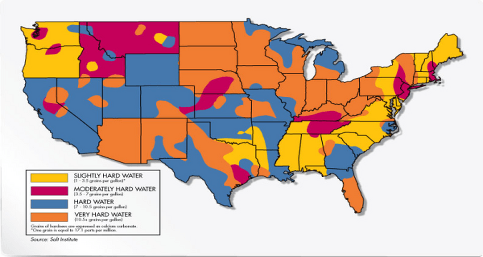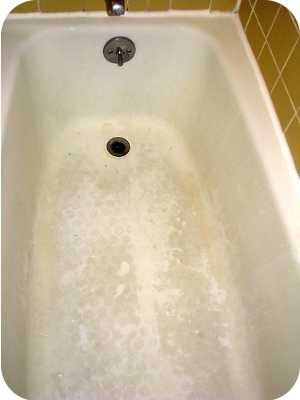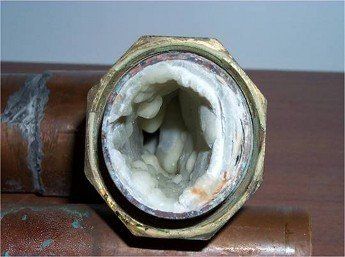Start your free evaluation today!
203.272.6017
1.800.628.6891
Refer A Friend for a $25 giftcard
Hard Water
Because more than 60 percent of the earth's water is groundwater, it travels through rock and soil picking up minerals, including calcium and magnesium along the way. These two contaminants produce what is commonly referred to as "hardness" in water. Generally speaking, hardness is measured in grains per gallon (gpg).
For example, if a water test indicates a range of 1.0 to 3.5 gpg, the water is considered slightly hard. If the measurement is greater than 10.5 gpg, the water is rated as being very hard. Hard water can be detected easily, even as one performs personal hygeine such as hair washing, or through the appearance of fixtures and appliances or changes in heating costs.
Clogged pipes and/or appliances could be a sign of hard water. Hard water mineral deposits can form in coffee makers and can build up in pipes or plumbing equipment. A consumer may notice a reduced water flow, as well as an increase in the number of calls to a repair person.
Consumers may notice a film on their bathtubs or shower tiles, or even on themselves. The film that is left often results in additional scouring and scrubbing of the affected fixtures, and can cause hair to be dull and limp, and dry the skin. A consumer's water heating costs could increase as a result of hard water. When hard water is heated, the minerals can precipitate and form scale. Besides buildup, mineral deposits can form an insulating barrier between the heating element and the water to be heated.
The calcium and magnesium in hard water act on many soaps and detergents to reduce their sudsing and cleaning capabilities. The soapy residue they form can be abrasive and reduce the life of clothing.
In areas where the water is hard or very hard, the local water utility may soften the water to about 5 or 6 gpg. This figure is still considered moderately hard, and consumers may still wish to soften the water further. The most common option for consumers is ion exchange water softening in the home. Domestic softening makes economic sense because it only softens the water to be used for laundering, cleaning, and other home uses. Softening at the central treatment facility is costly because it softens all water, including that which is used for fighting fires and cleaning streets.



